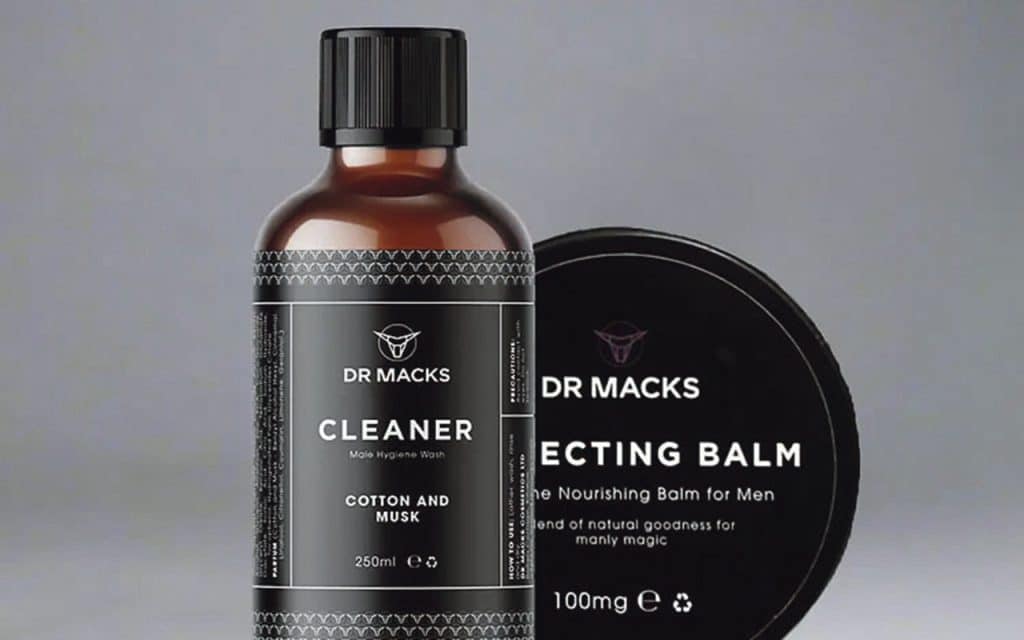
Sex is an important and wonderful part of our lives and wellbeing and we don’t talk about it enough. It is sometimes assumed that sex is either not important or not happening in the lives of older women but I am here to set the record straight. Women over 40 have sex, orgasms…and they even enjoy it!
There is much I can write on the topic of female sexual health and wellbeing but today I wanted to focus on the requirements for contraception and hormone stability in the over 40s.
When I talk sex and contraception with women in their 20s and 30s it’s a conversation about what she prefers to use in order to not get pregnant. Occasionally there are issues like migraines, acne, heavy periods or PMS that guide choice but on the whole it is a straightforward consultation. Seeing women between the ages of 40 and 50 is a whole other ballgame because there is so much going on physiologically, hormonally and emotionally at that time.
Consensus guidelines advise that contraception is needed for women up to the age of 55 years. What contraception a woman decides to use is a matter of choice, but for me, as a menopause doctor, where she is in her perimenopause/menopause journey very much dictates what I will recommend.
The Pill
Unfortunately the good old-fashioned Pill has come under attack in recent times on social media, often by young women who dub it unnatural and harmful without evidence to back this up. It can be nasty stuff critiquing other women for not being real, natural women. I want to make a strong case here for the Pill and indeed for all hormonal contraceptives.
Yes, using hormones is not 100 per cent natural but can we please all agree that mother nature is a bit of a bitch to ladies over 40? Besides the obvious disaster of an unplanned pregnancy at this age, we get hormone chaos and can have horrendous heavy, painful periods, all on top of managing the life joys of teenage kids, ageing parents and a career.
So I will completely defend allowing a woman to take power into her own hands to counter what mother nature intended her to endure in her 40s. And I would request that women under 30 please keep their pontificating, criticism and lecturing of other women’s use of hormones to themselves, thank you very much.
Oestrogen-containing contraception
What you know of as The Pill is actually a combined oral contraceptive pill or COC containing an oestrogen and a progestogen, two hormones that naturally occur in a woman’s body. The COC works by inhibiting ovulation and therefore prevents pregnancy. But there are also incredible non-contraceptive benefits of taking The Pill. It treats heavy, painful periods, is first line in the management of endometriosis symptoms and treats premenstrual syndrome as well as acne.
The oestrogen in many of these pills is ethinyl estradiol. This synthetic oestrogen is metabolised by the liver and the chemicals or end-metabolites generated as a result of this process cause a slightly increased risk of venous thromboembolism; ie a leg or lung clot and can cause a rise in blood pressure.
As the risk for both these issues is negligible in women under the age of 40, the risks of taking an ethinyl estradiol containing COC pill far outweighs the benefits for this age group.
Women over 40, however, will have a raised risk of thrombosis if they are very overweight, with a BMI over 30, or are smokers. Similarly, they might be more prone to the blood pressure effects of this sort of pill if BMI is over 30 or they have pre-existing Hypertension or high blood pressure.
In the past doctors would have told the 44-year-old woman who smokes, has hypertension and a BMI of 32 that she cannot have the COC Pill. Finally Big Pharma has put time and money into developing something other than different flavours of easy to swallow viagra!
New COC Pills
Drovelis is a COC that contains Estetrol an estrogen that is effectively an end-metabolite. That means it does not undergo the same metabolism in the liver as its sister ethinyl estradiol. In plain English; it is safer in the over-40s, as studies to-date have shown that its use is not associated with any increased risk of leg clots or raised blood pressure.
Another relatively new COC is Zoely. This contains estradiol hemihydrate, which is an estrogen that is body identical or the same as the oestrogen in our body. This is the same oestrogen contained in HRT products.
Perimenopause
I cannot talk about oestrogen containing contraception for the over 40-year-old and not mention perimenopause.
As early as age 42 or 43, women can experience perimenopause symptoms. These are many and varied, ranging from hot flushes, which might be intermittent, dry, sore vagina and painful sex to the emotional turmoil of low mood, tears, anxiety, raging anger and irritability; often all of the above happening in one day. Then there are weird burning, itchy skin symptoms, dry eyes and libido goes out the window. Helpfully, all this happens at a time when life has become very stressful with teenagers at home, ageing parents and career, work and possibly financial worries.
Symptoms happen because the twin engines that are our ovaries do not work as well as they did during the previous 30 years when they ovulated or produced an egg every month. Ovulation becomes erratic. Some months it skips, resulting in dropping oestrogen levels and oestrogen deficiency symptoms of flushes and dry vagina. A cycle without ovulation will have a prolonged phase of progestogen dominance, our angry, cranky hormone. Other months a woman will ovulate twice, giving very high oestrogen levels and relatively lower progestogen levels, a combination, which results in the oestrogen-dominant symptoms of long, heavy, painful periods, bloating, swollen painful tender breasts and headaches. It is not uncommon for women to start getting migraines for the first time at this age.
So my consultation with a 45-year-old to talk about contraception is also a consultation about stabilising hormones and how best to manage this hormone helter-skelter. I have encountered the gallows humour of the perimenopausal patient who finds it funny to be in the oxymoronic situation of needing contraception whilst having absolutely no interest in sex.
Contraceptive hormone therapy
So using any COC will steady that hormone chaos but some are better than others. I favour Zoely, a COC introduced recently, which contains oestradiol, a body identical oestrogen. This is the same oestrogen contained in HRT products. Therefore this COC will not only prevent pregnancy but also stabilise hormones, treat perimenopause symptoms and provide a little oestrogen hormone therapy in the same way HRT would. This will treat oestrogen deficiency symptoms of hot flushes and dry sore vagina. I always ask about sex and at that point in a consultation offer vagifem, an oestradiol pessary that goes into the vagina.
Drovelis, mentioned earlier, will have the same effects and is my go-to if a woman has elevated clot or blood pressure risks.
For this reason Zoely and Drovelis have been dubbed contraceptive HRT. To clarify: HRT products are not contraceptive.
So we have lots of options now to offer our over-40-year-old and COC pills can be safely up to the age of 50.
What if I can’t use oestrogen-containing contraception?
The COC pill, because of its oral oestrogen component, may be contraindicated, such as if there is a history leg clot, certain type of migraines, or if there is poorly-controlled hypertension. In this situation it is safe to use progestogen-only contraceptives such as the Mini Pill, the Depot, an injectable progestogen given every three months, the Implant, a tiny device inserted under the skin of the upper arm, changed every three years and The Mirena coil – more later. These forms of contraception can be also effective at managing perimenopause symptoms.
Can I have oestrogen HRT as well as my progestogen contraception when I start to get perimenopause symptoms?
Short answer is yes but it gets very complicated. The progestogens in contraceptives have not been proven to provide the endometrial protecting that progestogens in HRT do and therefore are not licensed for that. So, if your GP gives you oestrogen therapy as patch gel or tablet on top of your Mini pill, Depo or Implant, they will need to give you a second form of progestogen as well.
Did I mention that a GP’s consultation for contraception with a 46-year-old is a lot more complicated than that for a 26- or 36-year-old?
If I get to this complicated scenario, I strongly recommend my patient go for the Mirena progestogen contraceptive coil, as this IS licensed as part of HRT.
The Mirena Coil
Over the age of 40 many women develop heavy, painful periods. The Mirena coil contains a small amount of a progestogen, Levonorgestrel. The function of progestogen is to suppress the stimulant effect of oestrogen on the womb lining or endometrium. The Mirena coil constantly releases tiny amounts of progestogen in the womb resulting in suppression of the endometrium and very light, short, pain free periods. It is the most effective contraceptive treatment for heavy, painful periods. Many women stop bleeding altogether with the Mirena, It is licensed for contraception for eight-years but if fitted over the age of 45-years is effective until age 55.
A great advantage of having The Mirena in place over the age of 45 is that at some point peri-menopause will move into menopause and women start to have more pronounced oestrogen deficiency symptoms of hot flushes, dry vagina and brain fog, as well as emotional symptoms.
The Mirena makes managing that bridge from menopause to post-menopause so much easier. When a patient gets to the time of needing oestrogen therapy, it is a simple matter of adding in oestrogen as patch, gel or tablet because the Mirena will serve as the progestogen part of a HRT regimen. It is licensed for this for five years.
I hope this is helpful. If this article brought up any issues for you please book an appointment with your GP.
If you are suffering from heavy painful, chaotic bleeding over the age of 40 or you are struggling with contraceptive choices at that age, your GP can refer you to Bantry Gynaecology Clinic where I work alongside the consultant there, Dr Aenne Helps.



